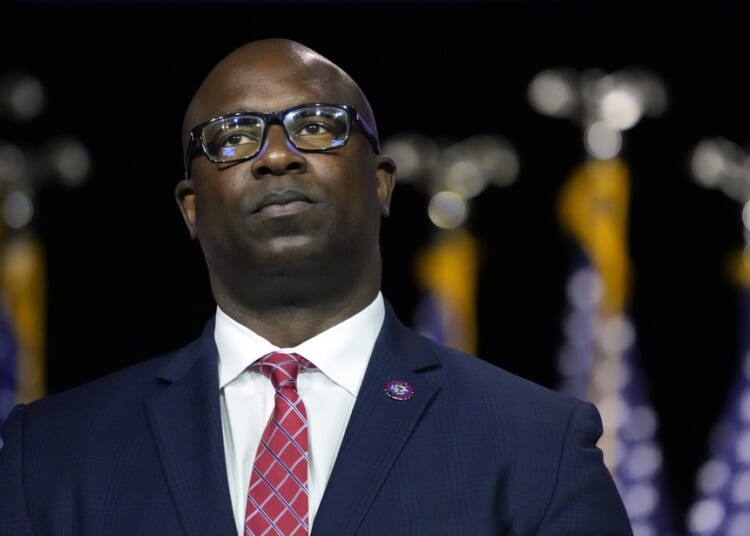Rep. Jamaal Bowman has sponsored a bill which, if passed, would pay Black Americans a total of $14 trillion in reparations for slavery. Bowman did allow that the money wouldn’t have to paid out all at once.
U.S. Rep. Jamaal Bowman, D-Yonkers, said it’s time for the federal government to finally acknowledge the deep, lasting harms suffered by African Americans. He backs federal legislation that would create a $14 trillion reparations program to aid the descendants of enslaved Black people and people of African descent…
There are about 42 million African Americans in the United States, representing 12% of our nation’s population, according to the 2020 census. That means the proposed reparations program could deliver roughly $333,000 per person. Bowman said it could be paid over decades.
“Who says the $14 trillion needs to be paid out in one shot?” said Bowman. “It might be possible for it to be paid out over 5 or 10 or 20 years. You could take that $333,000 and break it up into monthly checks over X amount of time. There are creative ways to do the right thing and do what needs to be done.”
Later in the article we get this justification for the bill.
The federal government set a precedent for paying reparations in 1988, providing recompense to 82,000 Japanese Americans who were survivors of internment during World War II. That program was on a much smaller scale than contemplated by Bowman’s bill, with $20,000 paid to each survivor.
That $20,000 would be closer to $50,000 in today’s dollars. Those payments were made to more that 82,000 survivors of internment who were still alive when the bill was passed in 1988. And this is where I think Bowman’s reparations plan doesn’t make a lot of sense. First he’s explicitly asking for reparations based on slavery that took place before the United States was a country. I’m not sure how the country can be held accountable for things that happened 150 years before it existed.
Additionally, the reparations paid to Japanese Americans was paid to survivors still alive when the bill was passed. And there were still many because only about 44 years had passed. But we are not still giving out checks to the descendants of internment survivors who were not themselves forced into camps. And obviously, slavery ended a long time ago, nearly 160 years. There is no one alive today who was a slave. And that makes the argument more tricky because the people who might benefit from a cash payout today aren’t the ones who were directly harmed.
But obviously the end of the Civil War was not the end of legal discrimination against black people in the United States. That continued for roughly another 100 years and some of those people who experienced that are still alive. Even after the passage of new Civil Rights laws in the mid-1960s there continued to be plenty of racism which had an impact on black families.
So I think there could be a case for reparations for those who lived through, for instance, Jim Crow laws, but it would have to be tailored to redressing wrongs made by the US and paid to people who were the actual victims of those errors, not to individuals who were born in the 21st century.
Anyway, I suspect Bowman’s real goal is simply to generate discussion and thereby drag the Overton Window open to the point that reparations seems more politically feasible. To do that he’s using the most emotionally powerful argument which is slavery rather than making a less emotive but more reasonable argument about the 20th century and still-living victims. The goal of activist campaigns is to make something possible and worry about making compromises later. Ask for $14 trillion up front so that when you later agree to $10 trillion you can argue you were being very reasonable.

